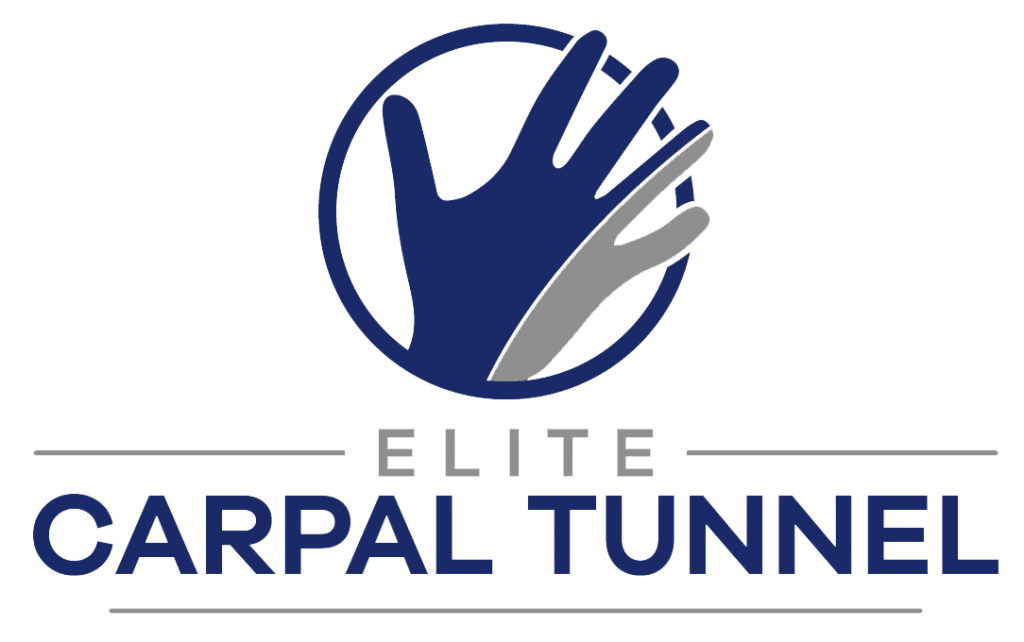While extended computer use can be linked to general hand pain, it is not fully clear whether mouse and/or keyboard use themselves are a major contributing factor to carpal tunnel syndrome. Nevertheless, it pays to practice proper hand posture while using a computer or similar device, and to reduce overextension of your wrists as much as possible. Other workplace habits or items that might contribute to carpal tunnel syndrome include assembly line work that involves flexing the wrist repetitively or for extended periods of time, as well as extensive time holding tools that vibrate. Performing such work in cold environments may also be a factor.
Frequently Asked Questions
In most patients, carpal tunnel syndrome gets worse over time, so early diagnosis and treatment are important. Early symptoms can often be relieved with simple measures like wearing a wrist splint or avoiding certain activities.
If pressure on the median nerve continues, however, it can lead to nerve damage and worsening symptoms. Nerve damage can result in permanent numbness and atrophy (weakening) of some of the muscles in the hand. To prevent permanent damage, surgery to take pressure off the median nerve may be recommended for some patients. Don’t kick the can down the road. Let Dr. Peterson and Elite Carpal Tunnel open the door to your hand health.
No problem. At Elite, you are in the driver’s seat. We will discuss a range of non-surgical and surgical treatments and assist you in making the best decision based on your circumstances and preferences.
Yes. Carpal tunnel care is Health Savings Account or Flexible Spending Account eligible. If your company offers a health or flexible spending account you can use it to pay for your care at Elite Carpal Tunnel.
- Carpal tunnel syndrome is more likely to develop in middle-aged and older people, while women are three times more likely to develop this condition than men. That may be because women’s wrist bones are smaller, which means the space through which the tendons and nerves must pass is narrower and more likely to become compressed.
- Other risk factors include the hormonal changes women undergo during pregnancy and menopause. The build-up of fluid during pregnancy can cause pressure on the carpal tunnel. In menopausal women, the bone structure in the wrist can become enlarged and cause pressure on the nerves.
- Other risk factors include genetic predisposition and injury or trauma. Sprains or fractures to the wrist can cause swelling or pressure to the nerve, which increases the risk of carpal tunnel syndrome developing.
- The other well-known risk factor for carpal tunnel syndrome is repetitive wrist and hand movements. Occupational factors can be the cause of this. The condition is common in assembly-line workers, check out operators, and carpenters.
- Certain hobbies, such as knitting and gardening, can also cause carpal tunnel syndrome to develop. Research is as yet limited as to whether long-term keyboard use is a risk factor.
We are happy to see you even if you have already tried non-surgical treatments. If you are ready for surgery, we will help you expedite the process. When scheduled in advance, you can have your carpal tunnel release surgery at your initial evaluation. Please let us know if you may be interested in same-day carpal tunnel release so we can plan accordingly.
Yes. We are happy to see you no matter what stage of the process you are at.
While carpal tunnel syndrome can come back after surgery, it is rare. Recurrence is less than 5 percent.
How long to be away from work after carpal tunnel surgery varies depending on a number of factors, including the kind of work that you do. In general, you should be able to return to desk work (or other light work) within a couple days after surgery. For jobs requiring heavy manual use of hands, you may need to have modified-duty restrictions or be off work for 2-4 weeks. In general, you can return to work activities as tolerated.
Numbness in the small finger may be an indication that you have compression on another nerve in the arm called the ulnar nerve. This compression is most common at the elbow near your “funny bone” and is called cubital tunnel syndrome. We can also treat cubital tunnel syndrome at Elite Carpal Tunnel.
Yes. We are happy to see you for work-related carpal tunnel syndrome. The claim process may require a change to some of our process, but we will work to accommodate your work-related claim.
Yes. When scheduled in advance it is possible for us to do your evaluation and your procedure on the same day. This requires some additional up front preparation, so please let us know if this is something you are interested in pursuing.
